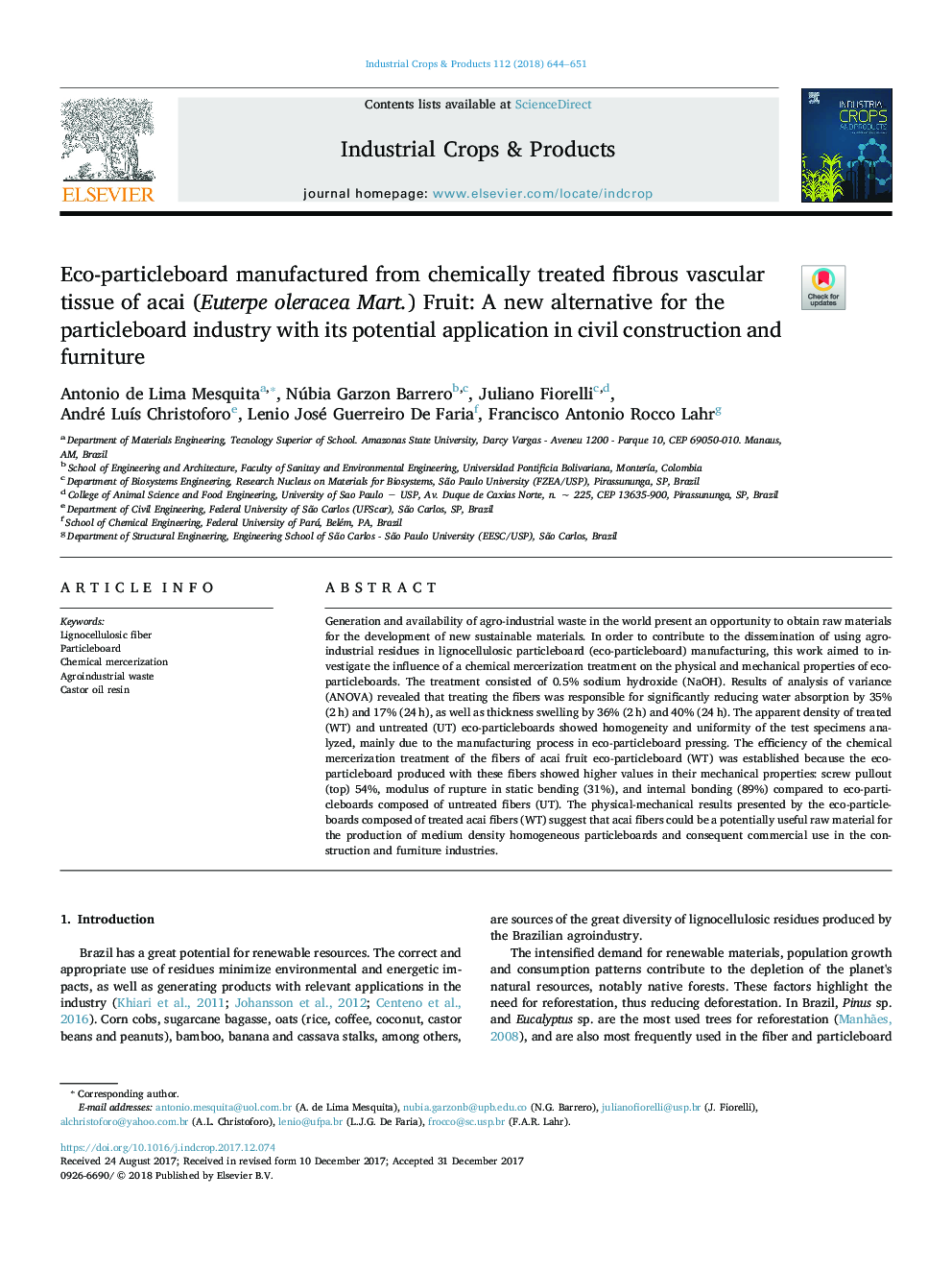| Article ID | Journal | Published Year | Pages | File Type |
|---|---|---|---|---|
| 8880787 | Industrial Crops and Products | 2018 | 8 Pages |
Abstract
Generation and availability of agro-industrial waste in the world present an opportunity to obtain raw materials for the development of new sustainable materials. In order to contribute to the dissemination of using agro-industrial residues in lignocellulosic particleboard (eco-particleboard) manufacturing, this work aimed to investigate the influence of a chemical mercerization treatment on the physical and mechanical properties of eco-particleboards. The treatment consisted of 0.5% sodium hydroxide (NaOH). Results of analysis of variance (ANOVA) revealed that treating the fibers was responsible for significantly reducing water absorption by 35% (2â¯h) and 17% (24â¯h), as well as thickness swelling by 36% (2â¯h) and 40% (24â¯h). The apparent density of treated (WT) and untreated (UT) eco-particleboards showed homogeneity and uniformity of the test specimens analyzed, mainly due to the manufacturing process in eco-particleboard pressing. The efficiency of the chemical mercerization treatment of the fibers of acai fruit eco-particleboard (WT) was established because the eco-particleboard produced with these fibers showed higher values in their mechanical properties: screw pullout (top) 54%, modulus of rupture in static bending (31%), and internal bonding (89%) compared to eco-particleboards composed of untreated fibers (UT). The physical-mechanical results presented by the eco-particleboards composed of treated acai fibers (WT) suggest that acai fibers could be a potentially useful raw material for the production of medium density homogeneous particleboards and consequent commercial use in the construction and furniture industries.
Related Topics
Life Sciences
Agricultural and Biological Sciences
Agronomy and Crop Science
Authors
Antonio de Lima Mesquita, Núbia Garzon Barrero, Juliano Fiorelli, André LuÃs Christoforo, Lenio José Guerreiro De Faria, Francisco Antonio Rocco Lahr,
